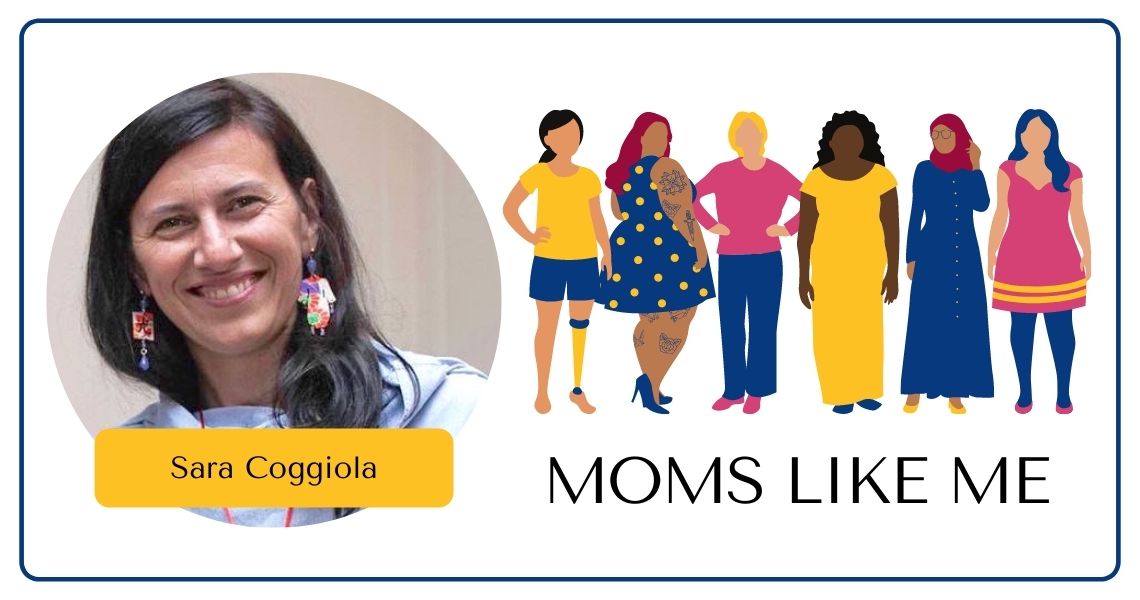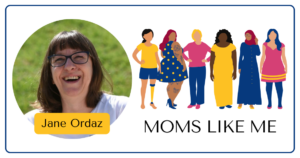I meet so many cool moms! This series gives them a chance to share their stories – to inspire others and to sometimes give us all a chuckle.
Parenting is not for cowards and parenting abroad can be next level. If you want to share your story, please get it touch with me. I’d love to feature you.
Sara hails from Italy but has been on the move for many years, raising two Third Culture Kids and pivoting her own career while living abroad. She is passionate about supporting TCKs and their families (we have a lot in common). Here is her story, filled with advice and resources – follow her on social media for more!
How did you get to where you are today?
Tell us a little bit about yourself and your family.
I am Sara and I am Italian. I grew up in Italy with love for neighbouring country France where we have spent many unplanned family holidays in my childhood. I think that was the first experience that moulded my xenophile approach to life.
I then decided to study foreign languages, picturing myself to pursue a career in the diplomatic sector.
It did not end this way, but I am pretty sure that both the will and the fate brought my husband and myself to live the life we are currently living.
We started our life abroad 16 years ago in Thailand, South East Asia. It was not easy at all with the cultural shock at first, but it turned out to be a big personal growth moment for both myself and my husband. Those experiences of life between different cultures became my personal asset, defining my current job. After having retrained as a Certified CoActive Coach and Cross Cultural Trainer I started designing webinars to help individuals, families and TCK settle in their new destinations. My aim is to support everyone who might be experiencing challenges while living, working and parenting between cultures.
My next projects involve a podcast about Reinvention stories, and I dream of co-creating a program of coaching for secondary education students.
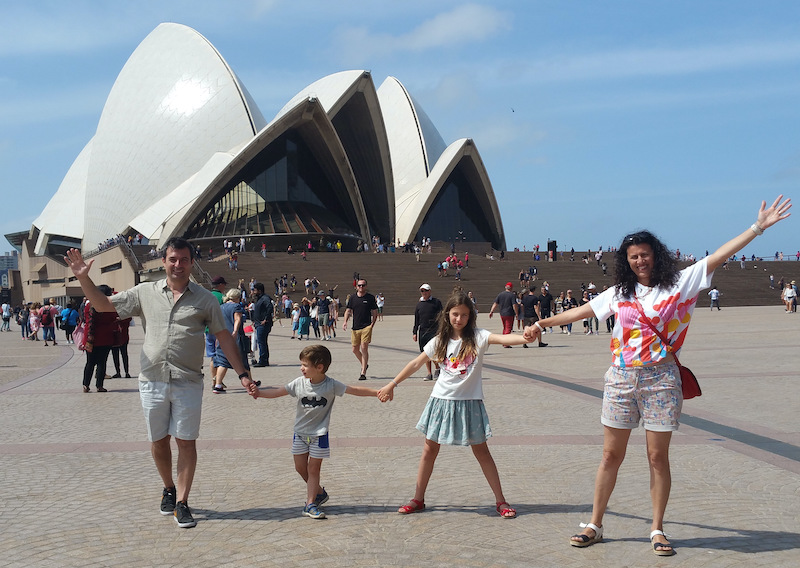
When did you first hear the term Third Culture Kids (TCKs) or Cross Cultural Kids (CCKs)? What did you think of it?
The first time I heard about TCKs/CCKs was at the first FIGT (Families in Global Transition) conference I attended in Amsterdam, and subsequently at the Sietar one. I was in the middle of my last professional reinvention. I was fascinated about what I heard and learnt but I also became aware that the topic was vast, fluid and in constant evolution.
When and how did you realize you were raising TCKs/CCKs? What changed for you?
I now have my own personal cross-cultural lab where I learn and experiment by doing: I’m bringing up my two cross-cultural kids around the world, even if I grew up in a monoculture country for the first third of my life. I feel the responsibility of getting informed on how this lifestyle will impact my children’s life, mindset and acquired values.
What was the best parenting advice you every got?
It’s actually a book title or two, and it came through big work I am doing on myself, in an attempt to be a better parent. I was very interested in two concepts explained in “Growth mindset” from Dr Carol Dweck and “The Strength switch” by Dr Lea Waters.
The first book taught me to have an open mind and look at my upbringing as something “not carved in stone” to use a strong metaphor from the book. It allowed to make space, I felt able to give permission to myself to embrace the differences I’ve collected over the years. To embrace the layers of experience that made the adult and the parent I am now. I learned to observe these years through the lenses of richness and abundance.
The second one is based on the strength parenting approach, derived from Martin Seligman positive psychology philosophy. The quote that stuck with me is that “families are by far the most powerful positive psychology delivery system of all” we could provide to our children. The principle explained in this book is to expand the kids’ strengths instead of reducing the weaknesses, or to have a different outcome where they manifest weaknesses.
I would have probably never encountered these titles if I stayed in my monocultural life, and I feel that strengths/weaknesses seesaw and mindset are very intertwined with a multicultural approach to life or international lifestyle.
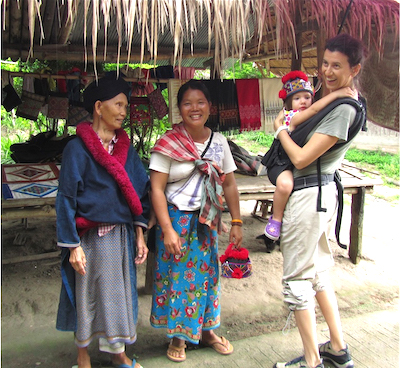
What do your kids think is “normal” that children in your passport country wouldn’t?
Eat pizza or noodles for breakfast 🙂
What traditions or rituals from your host countries have you adopted in your family?
There are a couple of traditions we adopted when we were living in Thailand, and my daughter loves when I go to her class and we show her peers what these traditions have taught us. These traditions are truly connected to the Thai culture but still have a universal meaning.
Loy Krathong is the festival at the end of the rainy season which brings abundance (in Thailand they harvest rice twice per year, a staple food). The Thais craft floating flowers boats decorated with candles, incense and money. They let it flow in their rivers thanking “Mae Naam” mother water. Besides the stunning scenery of a river dotted by candle lights, the huge participation and the meaning are fascinating elements of this adopted culture I love.
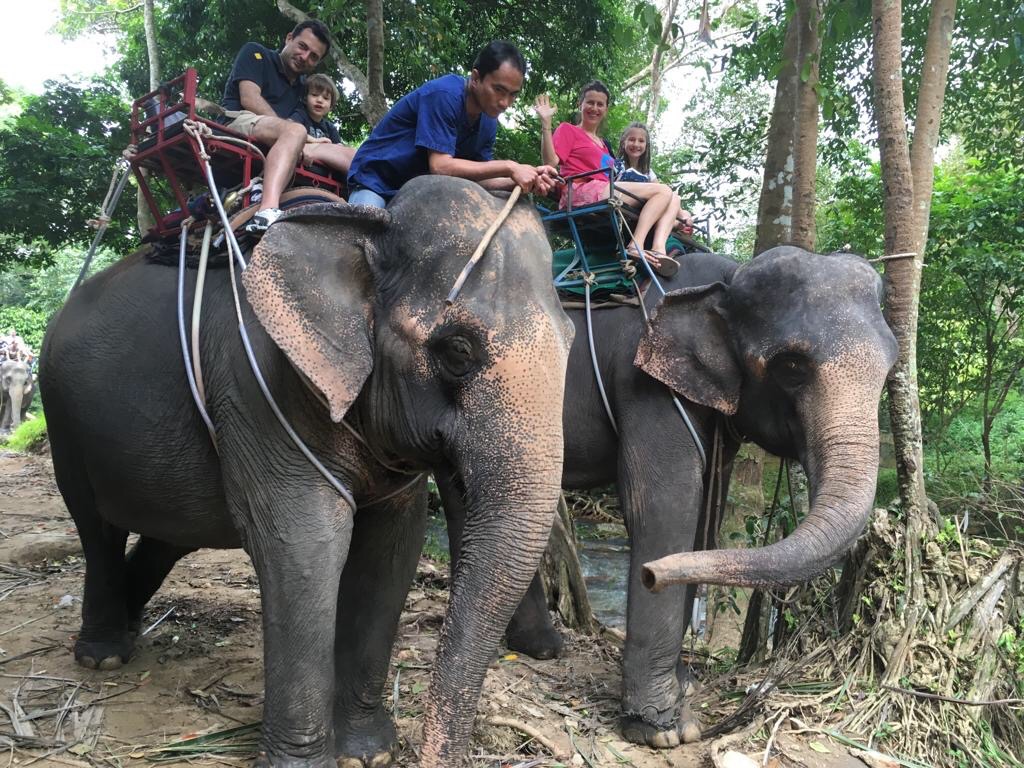
What was a big culture shock for you? How did you handle it?
European countries are very different if considered singularly but when we moved to France and Luxembourg we didn’t experience the same cultural and social difference we experienced in Thailand.
The socio-economic gap, the sex tourism, the clash of cultural values in one of the most diversity tolerant countries on earth had a huge impact on me. I was uncomfortable during the first year, learning how to find my place and navigating these waters. At that time I also lost my job, my status, my identity. It was a painful process. And it was definitely a growth. I had the opportunity to put western and eastern values on a scale and observe. Learn, reevaluate and act was precious moment for me.
At first I found rescue in the few communities I was hanging out with, the Italians, the French and the expats. Then I realised that it was a bubble, everyone put up masks to cope with the situation without really interacting or dealing with the discrepancies of those lifestyles. I tried to bridge relationships, connect with the locals, but for many I was the foreigner friend to show off in their entourage, and for others we didn’t have so many things in common to share. Weird phase. In the end we managed to find a balance.
What country or place is still on your destination bucket list and why?
I fell in love with Brazil when I was reading Amado’s book in my twenties. I was hooked by the descriptions of the tropics, the people, the food and the music. I was planning to visit Rio for my 40th birthday but I became a coach and gave birth to my second child that year!
Pretty amazing things happened when I turned 40! An age that I cherish a lot because of the new sensations of awareness, lightness and determination I gained. I now long to dance the samba for my 50th birthday, so the pandemic has to be over pretty soon!
What advice would you give families setting out on their first expat adventure?
Every experience is different and every person is different. I recommend to get informed about the destination, the culture and make a family plan including: desired outcome or objective of the mission, time span, careers, kids education objectives (if kids are involved), finances.
Read a lot and train yourself to look for gifts and opportunities even when things just look like challenges. You’ll be surprised when you look back at your path over the years.
Where to find Sara:
Sara Coggiola: CPCC, Certified Professional CoActive coachCross-Cultural Trainer, Facilitator
On Facebook https://www.facebook.com/Between-cultures-332979807426597/
On Instagram https://www.instagram.com/sarabetweencultures
On the web http://between-cultures.com/
On LinkedIn: https://www.linkedin.com/in/sara-coggiola-cpcc/

